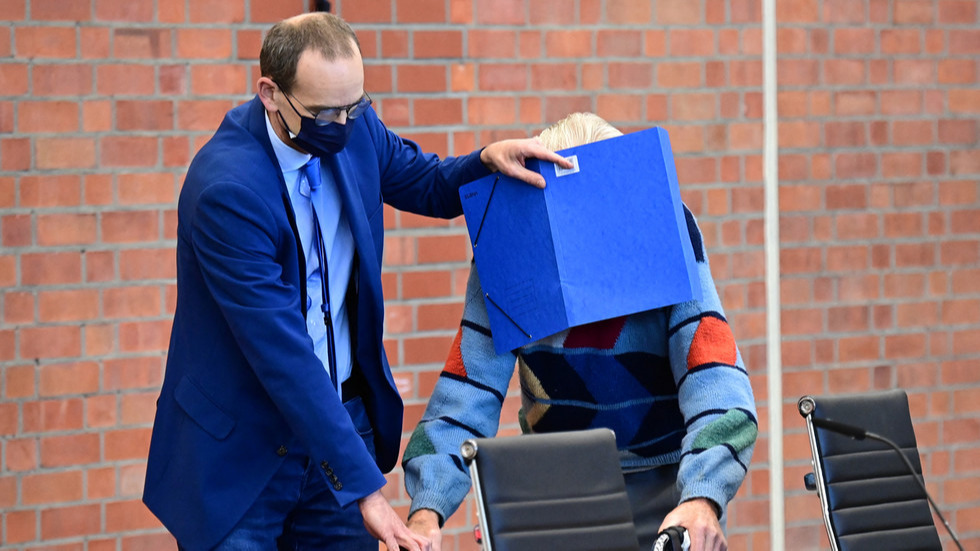
Defendant Josef S gets help from his lawyer Stefan Waterkamp (L) to hide his face behind a folder as he arrives for his trial in Brandenburg an der Havel, northeastern Germany, on October 7, 2021. © AFP / Tobias Schwarz
Berlin, October 10 (RHC)-- A 100-year-old ex-concentration camp guard has been put on trial in Germany, making him the oldest person yet to face the country’s docks for Nazi-era atrocities, on suspicion of being complicit in the murders of thousands.
The suspect, Josef S, appeared in court this past week, accused of “knowingly and willingly” aiding in the murder of 3,518 prisoners at the Sachsenhausen camp in Oranienburg, north of the German capital, Berlin, between 1942 and 1945.
Allegations stacked against the senior include being complicit in the “execution by firing squad of Soviet prisoners of war in 1942,” as well as using the highly poisonous gas Zyklon B to murder the camp’s prisoners.
According to a court spokeswoman, the pensioner is not accused of having shot anyone in particular, but his knowledge of the slayings while serving as a guard means that he contributed to these acts. His lawyer, Stefan Waterkamp, said that the defendant “will not speak, but will only provide information about his personal situation” at the trial.
Despite the centenarian’s old age, a medical assessment found that he was partially fit to stand trial, which is expected to last until early January. His appearances at court, however, will be limited to only a few hours per day.
The landmark trial comes shortly after a 96-year-old ex-Nazi secretary went on the run to avoid facing court, only to be found a few hours later. She was later released from custody in Germany pending her next court hearing.
On Wednesday, Germany expanded pension contributions to 6,500 Holocaust survivors, including those who endured the almost 900-day siege of Leningrad during World War II, now St Petersburg, Russia.
Tens of thousands of inmates met their fate in the Sachsenhausen camp due to forced labor, murder, medical experiments, starvation, and disease, before it was liberated by Soviet troops. More than 200,000 people were detained there, among them Jews, Roma, political opposition and gay people.
The 2011 trial of former camp guard John Demjanjuk, who was sentenced for aiding and abetting the murders of almost 30,000 people at Poland’s Sobibor death camp, set the precedent that ex-Nazi accomplices will be held accountable for their involvement in crimes, regardless of their age or the significance of their role.

